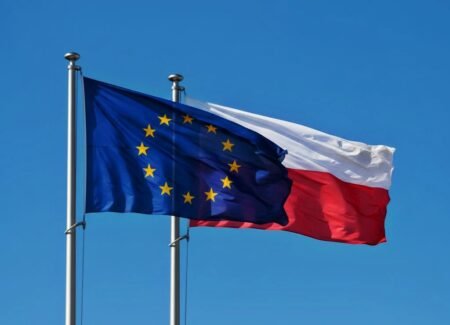The EU Budget serves European citizens, businesses, researchers, students, rural communities, cities and regions across Europe. The failure of the conciliation procedure in the night of 15-16 November 2010 means that the budget 2011 will not be in place sufficiently in time for ensuring the smooth operation of EU funding programmes and will cause delays in the implementation of new initiatives and the creation of new bodies.
Advertisement
What happens next?
In line with the Lisbon Treaty, the Commission will now start working on a new draft EU budget 2011. Once the new draft EU budget will be published, the Council and then the Parliament will have to adopt their position on it. This will be followed by another conciliation procedure. This process may again take months.
If there is no agreement on budget 2011 by 31 December, the EU Institutions will work from 1 January 2011 under the system of the “provisional twelfth”, as described in the Lisbon Treaty (art 315). This means that each chapter of the budget will be funded monthly up to a maximum of one twelfth of its appropriations in 2010.
How does the system of provisional twelfths work?
For each chapter of the budget, the corresponding amounts for 2010 are divided in 12 equal parts. These “twelfths” are available monthly, nothing less, nothing more.
What could be the implications?
* Any new body or initiative that did not have a budget line in 2010 will not be funded until a budget is adopted by Council and Parliament. .
* Programmes, initiatives and bodies that had a budget for the last months of the year will receive one 12th of that amount on a monthly basis. .
* No flexibility or planning in expenses will be possible, regardless of the bills to be paid or the commitments made.
* EU financial instruments (Solidarity Fund, Globalisation Adjustment Fund, Emergency Aid Reserve) cannot be mobilised for new needs.
What will be the impact on European Financial Stabilisation Mechanism?
There is no impact. The mechanism could operate as envisaged.
The European Financial Stabilisation Mechanism is a loan guarantee mechanism. There is no direct link with the EU budget for 2011. Loans could be guaranteed up to 60 billion EUR. The EU budget would in any case only get involved in the unlikely case of a default on a reimbursement; even if the EFSM was activated today, a first reimbursement would not be due before 2013 (depending on the reimbursement schedule).
What will be the impact on ITER?
At the conciliation, a Council regulation on the next multi-annual financial framework was discussed which would have incorporated a revision of the available margins in order to cover extra funding for ITER. The extra needs for ITER within the current financial framework amount to 1.4 billion. The collapse of the conciliation procedure signifies that this regulation will not be discussed any further for now. Therefore, it is likely that the negotiations on ITER will have to be restarted next year on the basis of a possible new proposal from the Commission that needs agreement by Parliament and Council. This means that there is no guarantee of financing for these extra costs.
What will be the impact on agriculture and farmers?
Direct aid to farmers is paid by Member States, which then get reimbursed by the Commission at the beginning of the following year. Most of the overall amounts of direct aid are usually reimbursed in January and February. However, monthly provisional twelfths are far too small to cover these reimbursements. The total amount of direct aid for 2011 is estimated at close to 40billion.
What about cohesion policy?
Reimbursement by the Commission of expenditure claims introduced by Member States in December 2010 but still unpaid on 1 January 2011 (due to late transmission to the Commission or to a lack of available appropriations in 2010) may be delayed as a result of the provisional twelfths, which limits the available payment appropriations for the month of January. Similarly, new claims for reimbursement from January 2011 might be delayed for the same reason.
What will happen to the European External Action Service (EEAS)?
The full transfer of staff and appropriations from Commission DGs was to be operated by a draft amending letter which has not been adopted in the framework of the conciliation. Moreover, the EEAS budget section for 2010 was left empty as regards appropriations. Therefore, should the system of provisional twelfths have to be applied from 1st January 2011 onwards, this could not provide the EEAS budget section with any appropriations, since the provisional twelfths are calculated on the basis of the appropriations entered in the budget of the previous year.
Any impact on the flexibility funds (EU Solidarity Fund, EU Globalisation Adjustment Fund, and Emergency Aid Reserve)?
The Solidarity Fund and the Globalisation Adjustment Fund can be mobilised only when needed and via an amending budget. However, you cannot have an amending budget if you have no budget. Therefore, under a regime of provisional twelfth, these funds cannot be mobilised.
As for the Emergency Aid Reserve, there is no money left in the reserve at this time of the year. Since the provisional twelfth is calculated from the figures at the end of year, not the beginning, no credits would be available.
Impact on the supervisory agencies in the field of financial services
The European Securities and Markets Authority (ESMA), the European Banking Authority (EBA) and the European Insurance and Occupational Pensions Authority (EIOPA) were to have a budget from 2011 financed by 40% from the EU budget and 60% from national contributions. Without an EU budget, they would not receive the EU budget contribution,
These agencies will not have an “establishment plan” and therefore would not be able to recruit staff. However, since they are already committees, they could keep this status for the time being to enable them to recruit temporary staff under national legislation and funded by national contributions.
Source: European Commission







